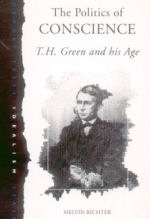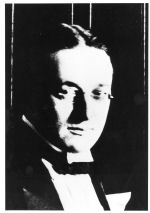Description of British Idealism
For much of the twentieth century modern analytic philosophy dominated the Anglophone world. Idealism as a philosophy was looked on with derision because of the alien character of its mode of analysis; heavily metaphysical, often impenetrable in its supposed mysticism, and all encompassing in its refusal to acknowledge dualisms and divisions of any kind. Everything had to be explained and understood in relation to broader and broader contexts, and ultimately in relation to experience, or the universe, as a whole. At a time when the unit of philosophical analysis had become smaller and smaller, the grand theory of idealism, thoroughly permeated as it was with religion and poetry, did not figure on the philosophical landscape. The possible exception is F. H. Bradley because, despite the fact that his logic and metaphysics were idealist in character, his philosophical manner and rigour was more compatible with the analytic method.

The revival of interest in philosophical idealism was at first historical. Melvin Richter’s The Politics of Conscience was an important milestone in this process, with the modest aim, not of reviving T. H. Green’s reputation, nor to endorse the low esteem into which he had fallen, but instead to understand him in his historical context. Since then there has been a proliferation of interest, not only historically oriented, but also acknowledging and exploiting their contribution to developing a communitarian theory of the relation of the individual to society, and of formulating a widely accepted theory of rights in opposition to natural rights grounded theories, namely one that rests upon social recognition as part of what it means to have a right, with their justification resting on the criterion of the common good. This has entailed the proliferation of specialist studies in individual idealist thinkers of the first, second and third generations, including T. H. Green, F. H. Bradley, Henry Jones, D. G. Ritchie, R. G. Collingwood and Michael Oakeshott.
The extent to which British Idealism was heavily influenced by Scots has been little noticed, yet not only were they at the forefront of introducing Hegel into Britain in the work of Ferrier, Carlyle, Hutchison Stirling and Edward Caird, but they were also distinctive in locating themselves in relation to the Scottish philosophical tradition they sought to extend. The Scottish Idealists, among them Edward Caird, David George Ritchie, Andrew Seth Pringle Pattison, William Mitchell, John Watson, and the Welshman Henry Jones who found his spiritual home in Glasgow, comprised a formidable force and dominated the philosophical professoriate in Britain, Australia and Canada from the late nineteen century to the years leading up to the First World War. Its main centres were St. Andrews, Glasgow and Edinburgh in Scotland, Cardiff in Wales, and Oxford in England.
Biographies of British Idealists
Personal Idealism
While Idealism in Britain always emphasised the view that there could be no thought without a thinker, and no thinker without thought, there was a good deal of discussion over the issue of the extent to which denying the distinction between subject and object put the self at risk of being subsumed entirely by the Absolute. Andrew Seth took every opportunity to remind Idealists of the importance of the self in any account of the nature of experience. In one of the most famous testiments of the ‘School’ of British Idealism, Essays in Philosophical Criticism, Seth argues, in discussing Kant, that the self exists only through the world, and the world only through the self. Self and the world are the same reality looked at from different points of view, but we must never lose sight of the fact that the basic unity, or identity, can only be grasped from the point of view of the subject, or person. As Hastings Rashdall argued some years later: ‘Our idea of a person is then the idea of a consciousness which thinks, which has a certain permanence, which distinguishes itself from its own successive experiences and from all other consciousness — lastly, and most important of all, which acts. A person is a conscious, permant, self-distinguishing, individual, active being’. (Hasting Rashdall, Personal Idealism, ed. Henry Sturt (London, Macmillan, 1902, p.372).
R. G. Collingwood

Collingwood was born when Hegelianism reigned supreme in British philosophy, but by the time of his death on 9 January, 1943 he was one of the last representatives of a philosophy that had gradually fallen out of fashion since the end of the First World War. Although Collingwood never fully embraced the Idealist label for his philosophy, he was widely acknowledged as one of its leading latter-day exponents.

